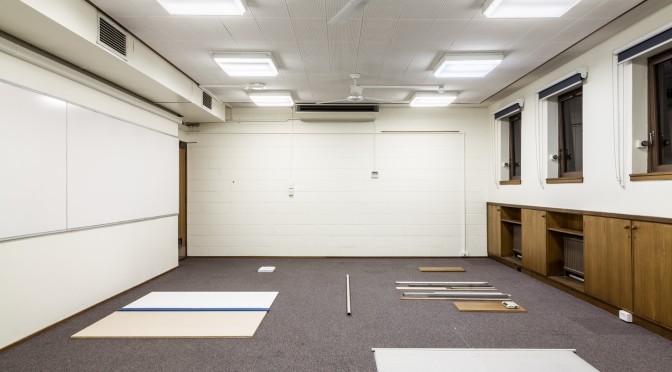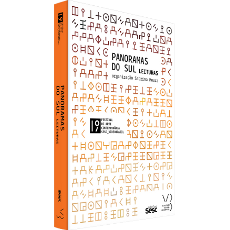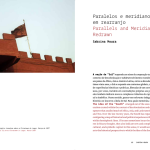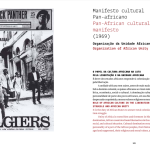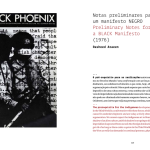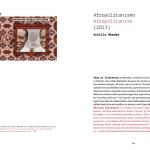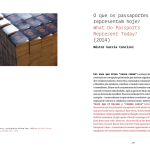Pluriv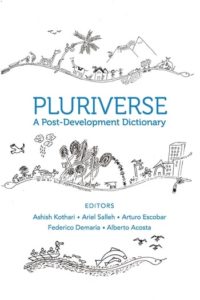 erse: A Post-Development Dictionary contains over one hundred essays on transformative initiatives and alternatives to the currently dominant processes of globalized development, including its structural roots in modernity, capitalism, state domination, and masculinist values. It offers critical essays on mainstream solutions that ‘greenwash’ development and presents radically different worldviews and practices from around the world that point to an ecologically wise and socially just world.
erse: A Post-Development Dictionary contains over one hundred essays on transformative initiatives and alternatives to the currently dominant processes of globalized development, including its structural roots in modernity, capitalism, state domination, and masculinist values. It offers critical essays on mainstream solutions that ‘greenwash’ development and presents radically different worldviews and practices from around the world that point to an ecologically wise and socially just world.
Category Archives: Book
Review of The Good University
At a talk on southern theory in the Postcolonial Institute, Raewyn Connell invoked the imaginary ideal of the ‘smoke-filled Oxford pub’. This image seemed to epitomise what I once aspired to as an undergraduate at the University of Melbourne. Here, learned gentlemen would draw on their classical knowledge in the exchange of rhetorical contributions to a theme, augmented by puffs of the pipe and glasses of claret.
Her recent book The Good University considers the evolution of the corporate model that has largely replaced the mortarboard with the business suit. The new ideal is a smart suited man or woman who can invoke the unlimited horizons that inspire capital, including new technologies and global markets.
It would be tempting to feel nostalgic for the old distinction between “town and gown”. Connell’s book instead offers a plurality of models: “No single knowledge formation exhausts the human possibilities of knowing.” This includes the Visva-Bharati “world university” established in India, the Al-Azhar established in Cairo during the Fatimid dynasty, or recent models such as the Slow Professor movement in Canada.
Connell’s writing is clear and succinct, but it would have been good to see her purview extended to include less formal communities of independent scholars. Eastern models of the scholar offer an embodied understanding of learning that includes taste as well as knowledge. The generation of postgraduates that have been produced by the expansion of the university beckons some form of community that can be sustained outside formal structures. Some mention could be made of the tools that we have today for collaboration that can enable shared learning without the infrastructure that brings corporate interests.
Raewyn Connell has been exemplary herself in sharing this knowledge through her blog on academic practices such as giving conference papers.
We might hope for companion books that offer alternatives to the corporatised institutions – the Good Hospital or even the Good Office.
The Good University is published by Zed Books.
Researching South-South Development Cooperation | The Politics of Knowledge Production |
Coming out in July 2019
This interdisciplinary book draws on voices from across the Global South and North to explore the epistemological and related methodological challenges and opportunities associated with researching South-South development cooperation, asking what these trends mean for the politics of knowledge production. Chapters are interspersed with shorter vignettes, which aim to share examples from first-hand participation in and observation of South-South development cooperation initiatives.
The global South is changing how knowledge is made, shared and used
In the past few decades, there’s been more critique of global knowledge inequalities and the global North’s dominance.
News of an important new contribution to southern theory edited by Fran Collyer, João Maia, Raewyn Connell and Robert Morrell.
Source: The global South is changing how knowledge is made, shared and used
Indigenous and Decolonizing Studies in Education | Mapping the Long View
Linda Tuhiwai Smith has co-edited a new volume on decolonisation and education, including perspectives across Moana and the Americas.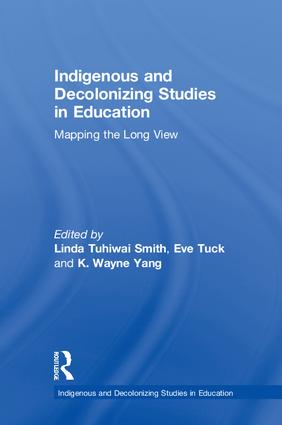
“to say water is life, land is our first teacher, and to ignore Indigenous presence and relationship with those lands and waters, is to miss the point entirely. Indigenous feminist scholarship has been especially careful to remind: there is no decolonization without Indigenous presence on Indigenous land and waters.”
Source: Indigenous and Decolonizing Studies in Education | Mapping the Long View | Taylor & Francis Group
Critical Times: Interventions in Global Critical Theory
South by Merlin Coverley
Is South a Northern Thing?
Artists and writers from the colder climes of northern Europe have long felt the lure of the South of the continent. Goethe was revitalised by his encounters with Mediterranean culture on his journey to Italy. Nietzsche took flight to the south to begin his life anew. D H Lawrence sought the health-giving southern sun in Sicily and Sardinia.South
People’s Tribunal book launch
You are invited to celebrate the launch of a new publication from the Aboriginal Humanities Project in association with Discipline
The People’s Tribunal: An Inquiry into the ‘Business Improvement Program’ at The University of Melbourne
The book will be launched by Helen Johnson
on Thursday 18 February from 6 to 8 pm at West Space, Level 1, 225 Bourke Street, Melbourne, Vic, 3000
Women in Academia Crossing North–South Borders: Gender, Race, and Displacement
Southern Panoramas: Perspectives for Other Geographies of Thought
SOUTHERN PANORAMAS: PERSPECTIVES FOR OTHER GEOGRAPHIES OF THOUGHT (Bilingual: Portuguese/ English)
Edited by Sabrina Moura
Texts by Milton Santos, José Rabasa, Arjun Appadurai, Jean e John Comaroff, Joaquín Torres García, Artur Barrio, Cildo Meireles, Rasheed Araeen, Southern Conceptualisms Network, Moacir dos Anjos, Anthony Gardner, Charles Green, Geeta Kapur, Néstor García Canclini, Achille Mbembe, Sasha Huber, Ana Longoni
Part of the publications launched by the 19th Festival of Contemporary Art SESC_Videobrasil (São Paulo, Brazil), the book SOUTHERN PANORAMAS | PERSPECTIVES FOR OTHER GEOGRAPHIES OF THOUGHT organized by Sabrina Moura, explores the notion of Global South as an axis of thought and knowledge production.
Conceived in the form of an anthology of texts, the book features contributions from various disciplines and offers a critical perspective on the formation of the concept of South. “Over the last twenty years, the South expands on a global level, configuring a map of historical and political experiences that have refused to keep within hemispheric lines. If its uses sometimes incur in the contradictions inherent in binary thought, they also indicate new and complex flows of economic, cultural and symbolic capital”, says Sabrina, who brought together works of artists Joaquin Torres-Garcia and Cildo Meireles, philosopher and political scientist Achille Mbembe, researcher and writer Ana Longoni, art critic Geeta Kapur, among others.
By revisiting essays, historical documents and manifestos, the publication presents debates previously unpublished in Portuguese — as the work of South African anthropologists Jean and John Comaroff on Southern theories — and translates into English reference texts written by Brazilian authors, such as Spatiotemporal relations in the developing world, written by the geographer Milton Santos in 1976 during his exile in Paris.
From the claims of non-aligned countries that gained strength during the Cold War, to the emergence of post-colonial thought and its critique, the publication offers an important contribution to the debates that question the validity of Eurocentric representations and narratives.
About the editor:
SABRINA MOURA is a researcher and curator based in São Paulo, Brazil. She is a PhD candidate at the University of Campinas (Unicamp) and holds a master’s degree in aesthetics and art history from University Paris VIII and in cultural projects direction from University Paris III Sorbonne Nouvelle. She is the curator of Public Programs of the Contemporary Art Festival SESC_Videobrasil (2013, 2015).



